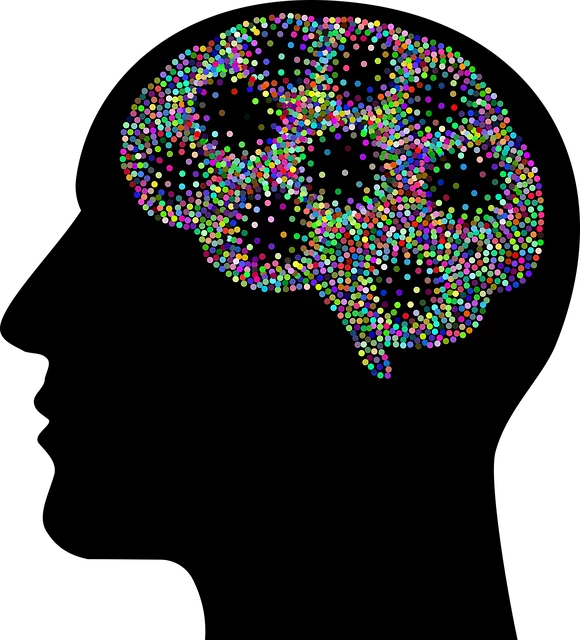In a stressful modern world, mood regulation is key to emotional balance. Professional guidance from institutions like Kaiser offers critical support through therapy and workshops on emotional regulation techniques. Cognitive Behavioral Therapy (CBT) specializes in challenging negative thought patterns for depression prevention. Healthy lifestyle changes, including exercise, hobbies, and sleep hygiene, significantly enhance well-being. Westminster's Kaiser mental health services have reputable therapists providing comprehensive, evidence-based approaches to managing mood disorders.
Mood regulation strategies are essential tools for navigating life’s emotional rollercoasters. This comprehensive guide explores various approaches to achieving and maintaining emotional balance, from understanding the fundamentals of mood regulation to leveraging therapy, cognitive techniques, and lifestyle changes. Discover how these tactics can help you manage mood disorders effectively, with a special focus on evaluating Westminster’s Kaiser network for quality therapists.
- Understanding Mood Regulation: Unlocking Emotional Balance
- The Role of Therapy in Managing Mood Disorders
- Cognitive Techniques for Effective Mood Control
- Lifestyle Changes for Enhanced Emotional Well-being
Understanding Mood Regulation: Unlocking Emotional Balance

Understanding Mood Regulation is a pivotal step towards achieving emotional balance. It involves recognizing and managing one’s feelings, thoughts, and behaviors to maintain mental wellness. In today’s fast-paced world, many people face challenges in regulating their moods due to stress, anxiety, or past traumas. This is where professional guidance can be instrumental. For instance, the community outreach programs implemented by some institutions, like Kaiser, offer valuable support systems, including therapy sessions and educational workshops that focus on emotional regulation techniques.
Journaling Exercise Guidance, a popular tool within mental wellness practices, encourages individuals to reflect on their emotions, track changes in mood over time, and identify triggers or patterns. This practice, combined with community outreach programs, can significantly enhance one’s ability to navigate and manage their emotional landscape. Additionally, exploring alternative strategies like therapy sessions at places like Westminster, where qualified therapists provide specialized care, ensures individuals receive the tailored support needed for optimal emotional balance.
The Role of Therapy in Managing Mood Disorders

Therapy plays a pivotal role in managing mood disorders, offering individuals valuable tools to navigate and regulate their emotional states effectively. At Westminster, Kaiser’s renowned mental health services stand out for their comprehensive approach, featuring a diverse range of therapeutic modalities. Their team comprises skilled therapists who utilize evidence-based practices tailored to individual needs. Whether it’s cognitive behavioral therapy (CBT), mindfulness practices, or other innovative techniques, these interventions empower individuals to develop coping skills that boost confidence and enhance overall well-being.
By engaging in therapy, patients can explore underlying causes of mood disorders, learn effective strategies for risk assessment and management, and acquire the resilience needed to cope with life’s challenges. Kaiser’s dedicated professionals foster a safe space where individuals can openly discuss their experiences, gain insights into their emotional patterns, and cultivate healthier ways of managing their moods. This supportive environment is crucial in fostering positive changes that extend beyond therapy sessions, helping individuals lead more fulfilling lives.
Cognitive Techniques for Effective Mood Control

Cognitive Techniques for Effective Mood Control offer a powerful set of tools to regulate emotions and promote mental well-being. These strategies, often employed by therapists, focus on challenging negative thought patterns and replacing them with more positive and realistic ones. By questioning and reframing these thoughts, individuals can gain a greater sense of control over their moods. For instance, techniques like cognitive restructuring help identify distorted thinking, encouraging patients to consider alternative perspectives. This process enables people to navigate through difficult emotions without being overwhelmed by them.
When seeking support, considering therapists with expertise in cognitive behavioral therapy (CBT), as offered at institutions like Kaiser, can be beneficial. Such professionals are well-equipped to assist individuals in understanding and managing their mental health. Effective CBT not only helps in depression prevention but also plays a crucial role in Mental Illness Stigma Reduction Efforts by promoting healthy communication strategies that foster understanding and empathy.
Lifestyle Changes for Enhanced Emotional Well-being

Adopting certain lifestyle changes can significantly enhance one’s emotional well-being. Regular physical activity, for instance, has been proven to boost mood and reduce symptoms of anxiety and depression. The simple act of moving your body releases endorphins, often referred to as ‘feel-good’ hormones, which promote a sense of calm and happiness. Moreover, engaging in activities you enjoy, whether it’s painting, hiking, or spending time with loved ones, can foster emotional resilience. These lifestyle adjustments, coupled with seeking professional support from therapists available at reputable institutions like Kaiser (including those in Westminster), offer a comprehensive approach to depression prevention and overall mental health education.
Additionally, prioritizing sleep hygiene is paramount for emotional regulation. Adequate rest allows the brain to process emotions effectively and maintain a stable mood throughout the day. Mental Health Education Programs Design often emphasize the importance of creating a bedtime routine that promotes quality sleep. This might include avoiding screens before bed, maintaining a cool and dark room, and practicing relaxation techniques like meditation or deep breathing exercises. By integrating such practices into daily life, individuals can better navigate emotional challenges and cultivate a more positive mindset.
Mood regulation is a multifaceted process that involves understanding and managing emotional states. Through cognitive techniques, lifestyle changes, and therapy, individuals can gain control over their mood disorders. When seeking help, consider whether Westminster’s Kaiser has good therapists to support your journey towards emotional balance. Remember, with the right strategies, achieving and maintaining a stable mood is achievable for everyone.






